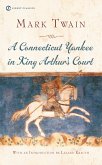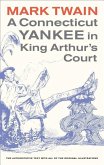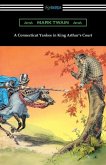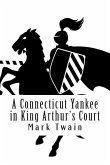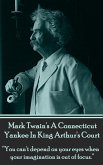This novel of Mark Twain's -- "A Connecticut Yankee in King Arthur's Court" -- gives us an odd view of the American literary genius: it shows is bent twoward science ficional. Twain developed a close and lasting friendship with scientific wunderkind Nikola Tesla, and the two spent quite a bit of time together (in Tesla's laboratory, among other places). Twain's fascination appears in his time traveler (from contemporary America, yet!), using his knowledge of science to introduce modern technology to Arthurian England. As with all works of a master lke Tawain, we highly recommend this novel -- but just between us, this book is a lot of fun, too. Go ahead, read it now.
Hinweis: Dieser Artikel kann nur an eine deutsche Lieferadresse ausgeliefert werden.
Hinweis: Dieser Artikel kann nur an eine deutsche Lieferadresse ausgeliefert werden.


